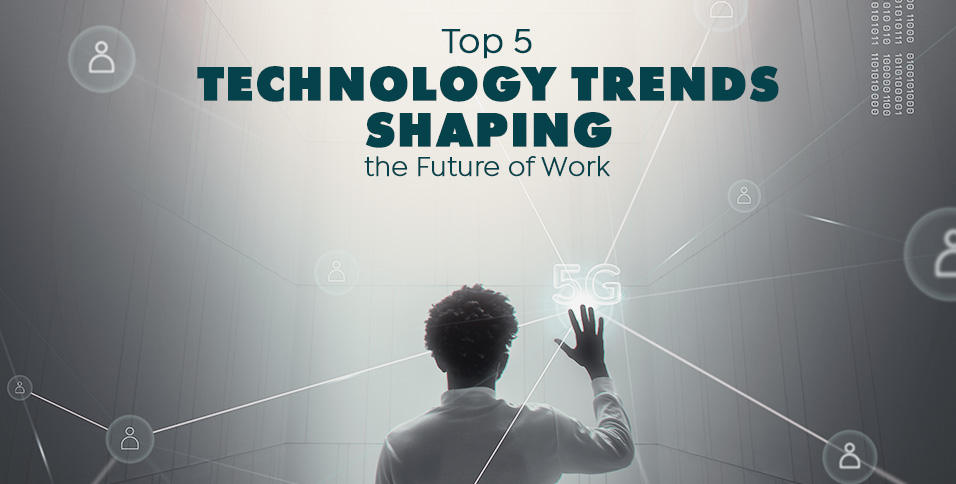
Top 19 Technological Advances Shaping the Future
Advanced technology continues to advance at an unprecedented pace, transforming the way we live, work, and interact with the world around us. This article explores 19 groundbreaking technological advancements that are shaping the future and revolutionizing various industries.
Artificial Intelligence
Artificial Intelligence (AI) has made significant strides in recent years, enabling machines to simulate human intelligence and perform complex tasks. From voice assistants to autonomous vehicles, AI is revolutionizing industries such as healthcare, finance, and transportation.
Internet of Things (IoT)
The Internet of Things connects everyday objects to the internet, allowing them to collect and exchange data. This technology has led to the development of smart homes, wearable devices, and connected infrastructure, improving efficiency and enhancing our lives.
Blockchain
Blockchain technology provides a secure and transparent way to record and verify transactions. It has the potential to revolutionize industries such as finance, supply chain management, and healthcare by ensuring transparency, traceability, and security.
Advanced technology 5G
The fifth-generation wireless technology, 5G, promises faster speeds, lower latency, and greater capacity. It will enable advancements in areas like autonomous vehicles, remote healthcare, and smart cities, transforming how we connect and communicate.
Virtual Reality (VR) and Augmented Reality (AR)
VR and AR technologies are reshaping the way we experience and interact with digital content. From immersive gaming to training simulations and virtual tours, these technologies have applications in entertainment, education, and various industries.
Robotics and Automation
Advancements in robotics and automation have the potential to revolutionize industries by increasing productivity and efficiency. From manufacturing to healthcare, robots are taking on tasks that were once exclusively performed by humans.
Advanced Technology Biotechnology
Biotechnology is advancing rapidly, enabling breakthroughs in areas such as gene editing, personalized medicine, and bioengineering. These advancements have the potential to transform healthcare, agriculture, and environmental sustainability.
Renewable Energy Technologies
Renewable energy technologies, such as solar and wind power, are gaining momentum as we seek sustainable alternatives to fossil fuels. These advancements are crucial for mitigating climate change and creating a cleaner and greener future.
Quantum Computing
Quantum computing leverages the principles of quantum mechanics to perform complex computations at unprecedented speeds. This technology has the potential to revolutionize fields like cryptography, optimization, and drug discovery.
3D Printing
3D printing allows the creation of three-dimensional objects from digital designs. It has applications in various industries, including manufacturing, healthcare, and architecture, enabling rapid prototyping and customization.
Autonomous Vehicles
Autonomous vehicles are poised to transform transportation, offering safer and more efficient alternatives to traditional vehicles. From self-driving cars to unmanned drones, this technology has the potential to revolutionize mobility.
Nanotechnology
Nanotechnology involves manipulating matter at the nanoscale to create materials with unique properties. It has applications in electronics, medicine, energy, and materials science, paving the way for advancements in diverse fields.
Clean Water Technologies
Clean water technologies are addressing the global challenge of water scarcity and pollution. Innovations such as desalination, water purification systems, and water recycling methods are improving access to clean and safe water.
Edge Computing
Edge computing brings computation and data storage closer to the source of data generation. It reduces latency and enables real-time processing, benefiting applications like IoT, autonomous systems, and immersive experiences.
Advanced Materials
Advancements in materials science are unlocking new possibilities in various industries. From lightweight and durable composites to flexible electronics and smart materials, these innovations are driving progress in manufacturing and design.
Gene Editing Technologies
Gene editing technologies, such as CRISPR-Cas9, allow precise modification of genetic material. They have the potential to revolutionize healthcare, agriculture, and biotechnology, offering new avenues for disease treatment and crop improvement.
Cognitive Computing
Cognitive computing combines AI, machine learning, and natural language processing to enable machines to understand and interact with humans in a more human-like manner. It has applications in areas such as virtual assistants, customer service, and data analysis.
Advanced Data Analytics
The ability to collect and analyze large volumes of data has paved the way for advanced data analytics. Techniques like machine learning and predictive analytics are transforming industries by providing valuable insights and enabling data-driven decision-making.
Space Exploration Technologies
Advancements in space exploration technologies are expanding our understanding of the universe and opening up opportunities for commercial space travel. Private companies are developing reusable rockets and exploring the potential of colonization on other planets.
Conclusion
The rapid pace of technological advancements is transforming society and reshaping industries. From AI and IoT to blockchain and renewable energy technologies, these 19 groundbreaking innovations hold immense potential to revolutionize the way we live, work, and interact with the world. As we continue to embrace and harness these advancements, it is crucial to ensure responsible and ethical use, address challenges such as data privacy and security, and strive for inclusivity to ensure that the benefits of technology are accessible to all. By staying informed and embracing these technological advances, we can shape a brighter and more interconnected future.


